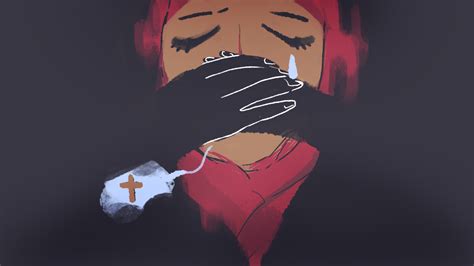The youth of Pakistan, often celebrated as the torchbearers of the nation’s future, are trapped in a cycle of despair and deprivation. Their dreams are shackled by crushing poverty and the glaring absence of educational opportunities. UNICEF’s heartbreaking statistics reveal that 22.8 million children, aged 5 to 16, are out of school, robbed of their right to learn and grow. The World Bank forewarns an even bleaker reality, with poverty projected to engulf 37.2% of the population by 2023. This harsh economic reality forces countless young souls to leave their homes, only to find themselves ensnared in the dark world of child labor—3.3 million of them, according to UNICEF.
But the nightmare doesn’t end there. Vulnerable and destitute, these children endure unimaginable suffering. They are relentlessly exposed to physical, emotional, and sexual abuse, with a chilling 80-90% of street children under 18 falling prey to sexual assault. Their innocence is stolen; their cries are unheard.
In Khyber-Pakhtunkhwa (KP), the plight deepens. Desperate for a glimmer of hope, many children gravitate towards truck stops, or “truck addas,” only to become victims of heinous exploitation. Truck drivers, exploiting their desperation, lure them with money and food, leading them into the nightmarish practice of “bacha bazi.” Rooted in the shadows of Afghanistan’s brutal past, this vile tradition enslaves young boys in exchange for mere survival.
Their trauma runs deep, a silent scream echoing in their hearts. These children, scarred beyond measure, view the world through a lens of fear and hatred. Psychiatrist Dr. Khalid Mufti reveals the extent of their suffering: when interviewed by male doctors, these young victims shrink away, seeing men as nothing but oppressors. Their pain and anguish reflect a society that has failed them—a society that must now wake up to the cries of its most vulnerable and fight for their safety, dignity, and future.
In a nation where morality is deeply intertwined with faith, Pakistan, as a Muslim-majority state, deems homosexuality a grave sin, unequivocally condemned in the Quran. Yet, the cruel reality of bacha bazi exposes a harrowing contradiction. Those who perpetrate this heinous practice—truck drivers and others—often rationalize their actions with chilling indifference. They claim their long absences from home and unmet desires drive them to exploit vulnerable children. Even more disturbingly, they argue that the children themselves do not object, as if innocence and powerlessness equate to consent.
Such justifications reveal not only a profound moral decay but also the devastating failure of society to protect its most vulnerable. These children, caught in the claws of exploitation, are robbed of their childhood, their dignity, and their future.
Pakistan’s laws, in theory, reflect a severe intolerance for child abuse. Section 376(1) of the Pakistan Penal Code prescribes death or life imprisonment without parole for those guilty of such crimes. Yet these laws, though harsh on paper, are rendered impotent by poor enforcement. Abusers walk free, while countless children remain trapped in a life of fear and despair. The Human Rights Commission’s recent report reveals a haunting statistic: over 11% of Pakistani children suffer abuse every single day.
As if abuse weren’t enough, many of these children fall prey to another sinister trap—drug addiction. Predatory drug dealers exploit their pain and naivety, luring them with promises of momentary escape. Once ensnared, the children descend into the dark abyss of addiction, a cycle nearly impossible to break. To feed their dependency, they are pushed into crime—stealing, begging, and even prostitution—further tightening the chains of their suffering.
The devastating ripple effects of this exploitation are immeasurable. These young souls, who should be dreaming of brighter tomorrows, are instead plunged into an unending nightmare of abuse, addiction, and crime. The time to act is to shatter this cycle of pain, hold the perpetrators accountable, and rebuild a society that safeguards its children with unyielding resolve and compassion.
Amidst the chaos and challenges that Pakistan faces daily, a silent tragedy continues to unfold—bacha bazi, a harrowing practice that thrives in the shadows of neglect and apathy. While politicians woo the uneducated masses with fleeting promises and temporary relief, they fail to address the deep-rooted issues tearing at the nation’s moral fabric. It’s time to rise above these short-sighted solutions and focus on sustainable, transformative change that can secure a future where every child is safe, educated, and valued.
The eradication of such heinous crimes demands unwavering resolve and comprehensive reforms. Justice must be swift and uncompromising—those who prey on vulnerable children must face severe consequences that send a clear message: this evil has no place in our society. But justice alone is not enough. Pakistan’s children need sanctuaries—safe havens where the homeless, the abandoned, and the exploited can find shelter, education, and hope.
Education is the cornerstone of change. Free, accessible education can break the chains of ignorance and poverty, giving children the tools they need to reclaim their future. Alongside this, widespread awareness campaigns must shine a light on the transformative power of education and the urgent need to protect every child. By doing so, we can instill a collective responsibility within society to stand up for its most vulnerable.
The future of Pakistan rests on the shoulders of its youth. These young lives, so often overlooked and exploited, hold the potential to rebuild and transform the nation. By prioritizing their safety, education, and empowerment, we can lay the foundation for a brighter, more just Pakistan—a Pakistan where no child is left behind and every dream is given a chance to flourish.
